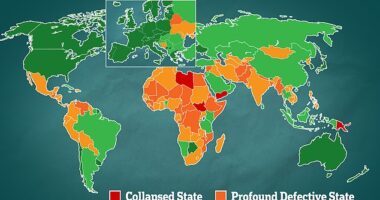
Pandemics are inexorable—and the canon of plague literature is a chronicle of nature’s senselessness and its indomitability. “There was no ostensible cause,” wrote Thucydides in 431 BC, about the Plague of Athens, an epidemic of typhus, likely, that laid the city to waste. “Strong and weak constitutions proved equally incapable of resistance, all alike being swept away.”
Boccaccio also begins The Decameron, his masterful collection of tales (c. 1353) told by young adults fleeing Florence for the countryside, with the shock of plague—and subsequent plot twists, whether slapstick or tragic, unfold as if ordained. Anything goes. “Because of the chaos of the present age, the judges have deserted the courts, the laws of God and man are in abeyance, and everyone is given ample license to preserve his life as best he may,” says Dioneo on Day Six. Earlier, on Day Three, Dioneo launches into ecstatic smut, in which a penis is a devil and a vagina is hell. And on Day Four, Lisabetta buries her lover’s head in a pot of basil. In context, that makes perfect sense.
But even as plague years generate twisty new fables, each time a novel pathogen gets on a global tear, existing human narratives are shattered. The old life is reached for, again and again, like a phantom limb. During outbreaks of infectious diseases, including smallpox, Spanish flu, and the current coronavirus, we live by stories of alternate universes in which history might be turned back, the sick healed, the dead brought back, normalcy restored. If only the federal government had made Covid-19 test kits available sooner. If China had acted with greater transparency and dispatch. If we had avoided that spring break party.
All this storytelling can give the agitated mind something to churn on, but obsessing over conditionals can also add to the moment-to-moment burden of preventing sickness and death, and tending to the sick and dying.
Thus, the literature of plagues confronts inevitability along with reeling what-ifs. Published around 550, Procopius of Caesarea’s account of the so-called Plague of Justinian, which devastated the Eastern Roman Empire in 542, warns that any attempt to extenuate plagues is folly: “It is quite impossible either to express in words or to conceive in thought.” Plagues don’t come for one tribe or another; they don’t smite a population because it’s gone astray; they’re neither divine punishment nor a sign of the Rapture.
And as tempting as it is to try to discern why one human gets sick and another is spared, this is not just inhumane, in Procopius’ view, it’s a lie. Being Chinese or a pagan or a New Yorker makes no difference. Neither does eating junk food or cycling competitively. Procopius: “For much as men differ with regard to places in which they live, or in the law of their daily life, or in natural bent, or in active pursuits, or in whatever else man differs from man, in the case of this disease alone the difference availed naught.”
Plagues are leveling in the extreme, making a rich joke of nearly every human endeavor. In response the plague literature exploits that joke, and often partakes of tropes from a late-Medieval French painting style, danse macabre, in which ominously merry skeletons dance people to their graves. (The dance metaphor has, improbably, resurfaced lately in descriptions of how a population that’s been disoriented by an epidemic can lurch between prioritizing health care and prioritizing its economy.)
These danse macabre images spoof human vanity, especially that of the rich, noble, and religious, who believe they’re above the vulnerabilities of the body. In Edgar Allan Poe’s “Masque of the Red Death,” Prince Prospero finds “his dominions … half depopulated” by a vicious plague, and so summons a thousand nobles to lock down with him in his well-provisioned and thoroughly sealed abbey. “With such precautions the courtiers might bid defiance to contagion.” But contagions can’t be defied, it turns out, no matter how many ballerinas and casks of wine are at hand. Ultimately, “Death held illimitable dominion over all.”








